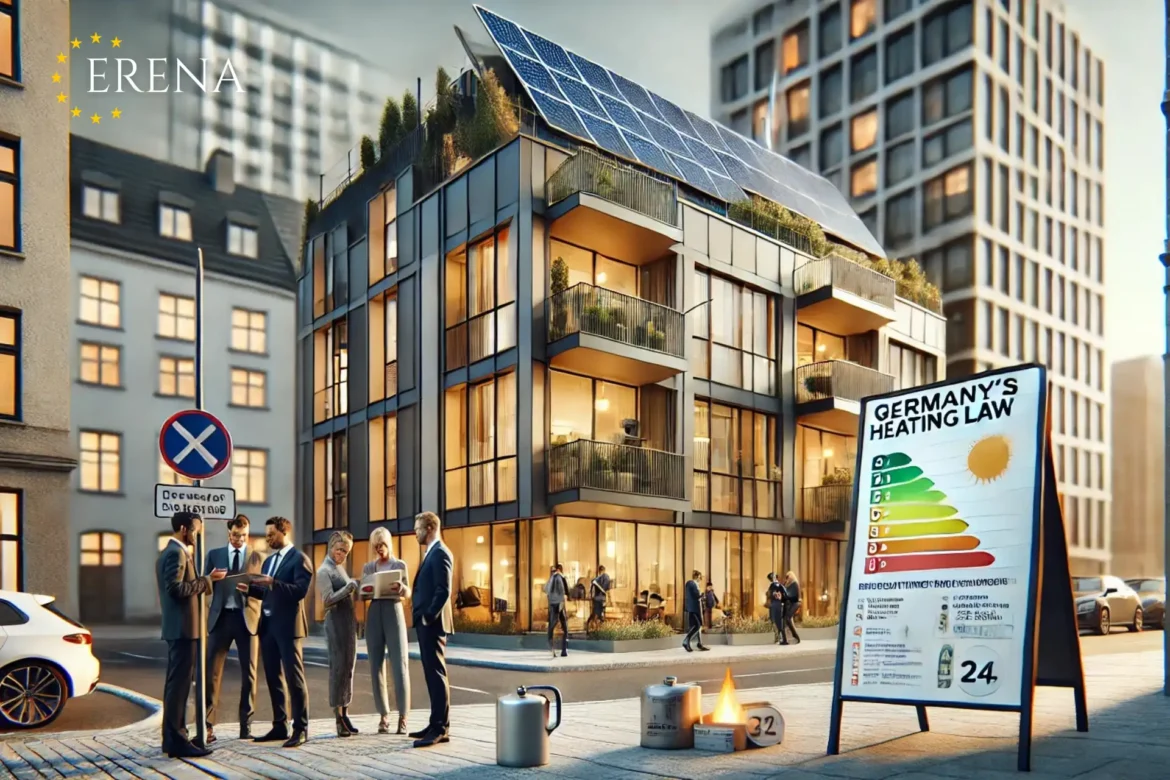In recent years, Germany has been actively implementing environmentally oriented reforms aimed at combating climate change and increasing energy efficiency. One of the key steps has been the adoption of the Heating Law, which mandates the gradual transition from fossil fuels to environmentally friendly heating solutions. This legislation has significantly impacted the country’s real estate market, bringing both positive and negative changes. This text explores how the new law is transforming this sector.
Key Provisions of the Law
The German Heating Law focuses on reducing carbon dioxide emissions and promoting the use of renewable energy sources. The main aspects of the law include:
1. Mandatory use of environmentally friendly energy sources for heating in new buildings starting in 2024.
2. Installation of energy-efficient systems in existing buildings during equipment replacements.
3. Financial support for homeowners through subsidies, tax incentives, and low-interest loans to reduce modernization costs.
Positive Impact on the Real Estate Market
1. Increased Demand for Energy-Efficient Properties: The law has driven heightened interest in buildings equipped with modern heating and insulation systems. These properties attract buyers due to lower operating costs and compliance with new environmental regulations.
2. Rising Value of “Green” Real Estate: Environmentally friendly homes have become more sought-after, leading to an increase in their prices. Investors view such properties as promising assets that will remain in demand in the future.
3. Accelerated Development of the Construction Industry: The demand for building renovation and modernization has boosted activity in the construction sector. Companies specializing in the installation of energy-efficient heating systems report a surge in orders.
4. Introduction of New Certification Standards: The law has popularized green certifications for real estate, enabling buyers to better understand the energy efficiency of a property.
Negative Impact on the Real Estate Market
1. High Costs of Modernization: Owners of older properties face significant investments to bring their buildings into compliance with the law. Installing heat pumps, solar panels, or other systems requires substantial financial resources.
2. Decreased Competitiveness of Older Buildings: Properties that do not meet modern energy efficiency standards are losing their market appeal, particularly in less affluent regions.
3. Longer Selling Times: The process of selling real estate can be delayed if the property requires extensive updates to meet new regulations.
4. Challenges for the Rental Market: Landlords of residential buildings face the need to increase rental prices to offset modernization costs, which may reduce rental affordability.
Government Support and Its Role
To mitigate the negative consequences of the new law, the German government has introduced measures to support homeowners and stimulate modernization:
• Subsidies: The government covers up to 40% of the cost of equipment and installation for modern heating systems.
• Preferential Loans: Banks offer loans on favorable terms to finance energy-efficient projects.
• Tax Relief: Expenses on modernization can be partially deducted from taxable income, easing the financial burden on property owners.
These measures have helped many homeowners adapt to the new requirements, but not all are able to fully utilize the support due to financial constraints or administrative hurdles.
Long-Term Prospects
The adopted changes hold significant potential for future improvement. Here are the main long-term prospects:
1. Increased Energy Efficiency of Housing: The introduction of modern heating technologies improves the quality of the country’s housing stock and reduces the carbon footprint.
2. Encouragement of Innovation: The law has created conditions for the accelerated development of green technologies, fostering job creation and industry growth.
3. Attraction of Investments: Real estate with high energy efficiency levels is becoming increasingly attractive to investors, boosting market activity.
4. Savings on Utility Costs: New heating systems reduce operating expenses, benefiting both property owners and tenants.
Conclusion
Germany’s Heating Law represents an important step towards sustainable development. Despite the challenges associated with its implementation, it opens new opportunities for housing modernization, innovation stimulation, and carbon footprint reduction. For the successful realization of the reform, it is essential to continue expanding government support programs and raising public awareness of the benefits of energy-efficient technologies. Thus, the new law not only transforms the real estate market but also contributes to creating a more environmentally sustainable and economically efficient living environment.
The heating law adopted by the German government – how this decision affected the real estate market
637

